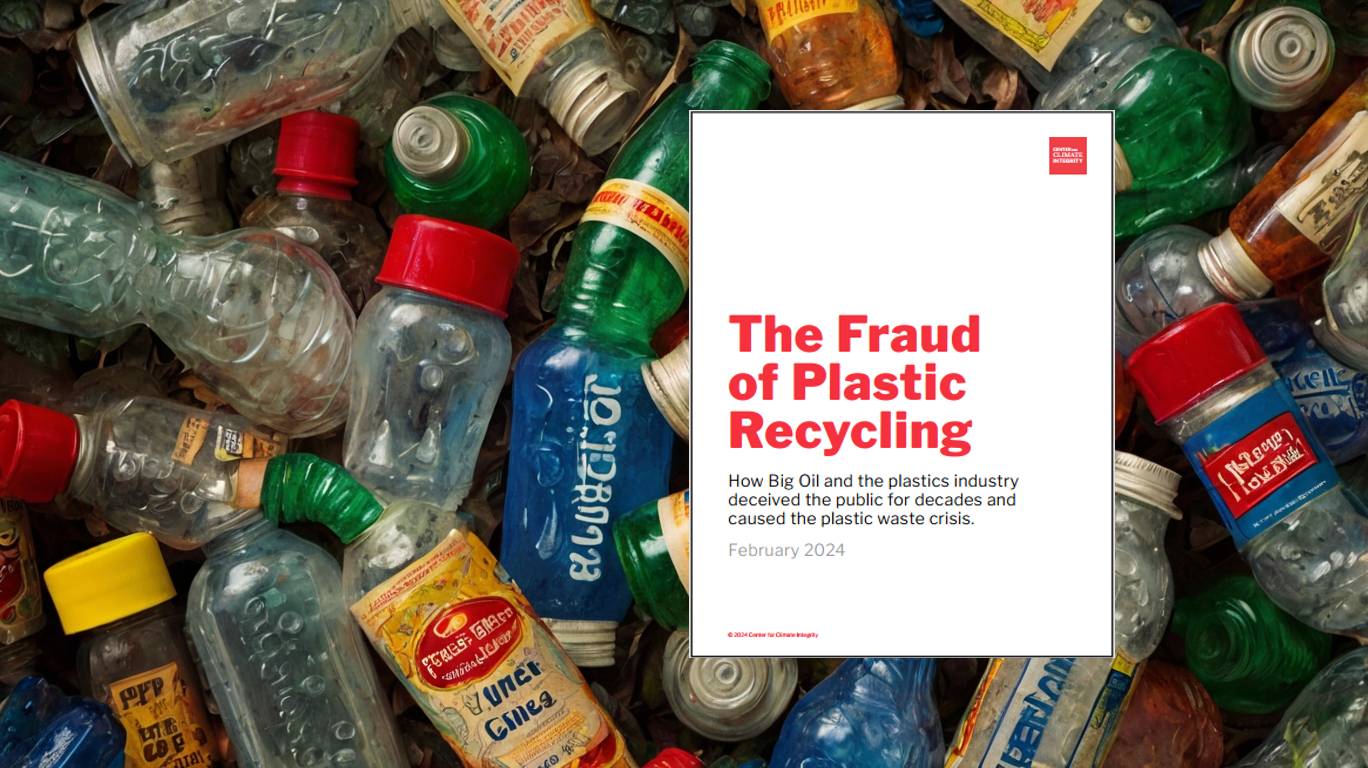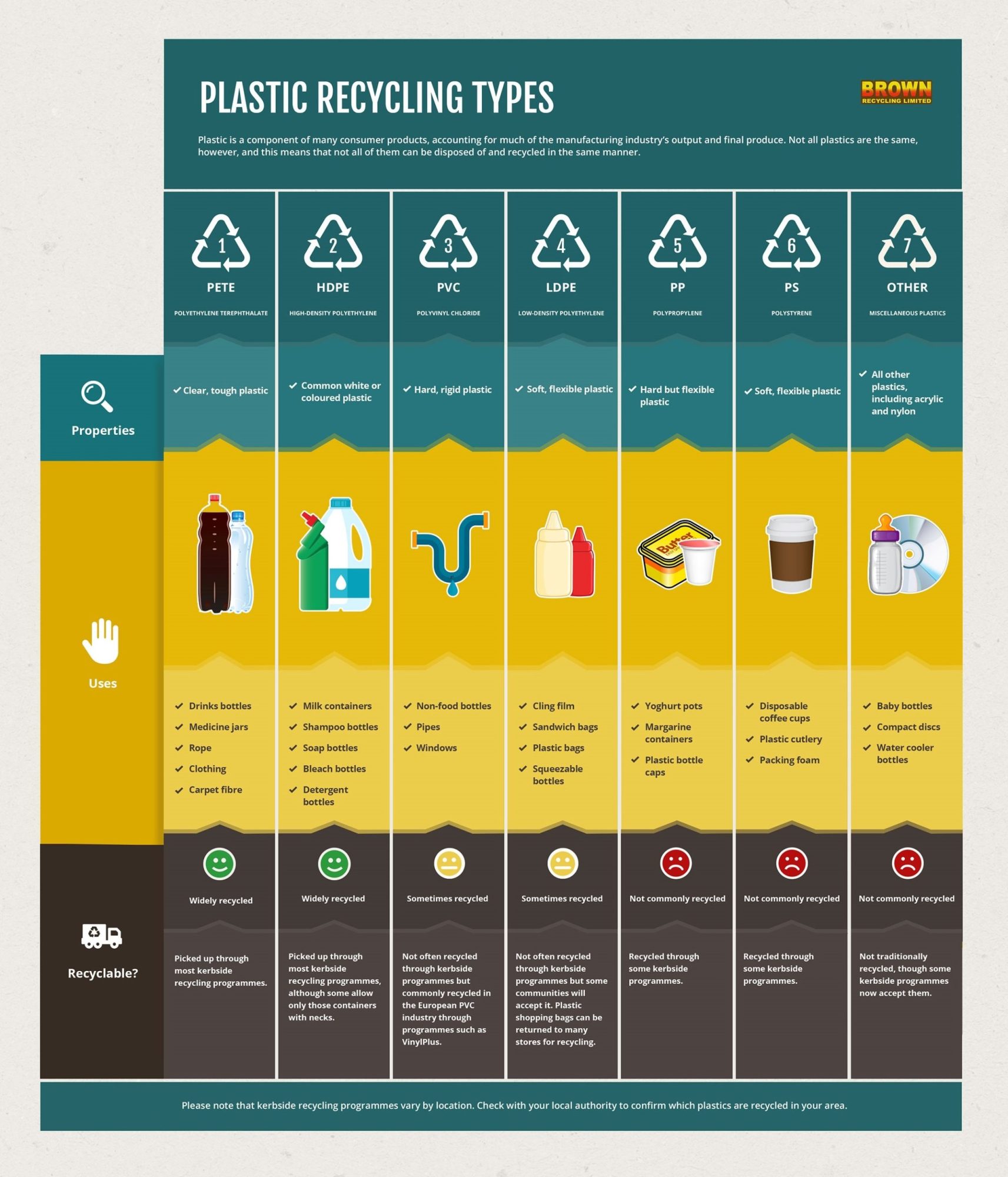
A new report from the Center for Climate Integrity claims that the plastics industry has spent decades deceiving the public about the feasibility of recycling, exacerbating the global plastic waste crisis. The report, The Fraud of Plastic Recycling, accuses major petrochemical companies, including ExxonMobil, of promoting plastic recycling as a solution to plastic waste despite knowing it was largely unachievable.
The report alleges that since the 1980s, the plastics industry has run public relations campaigns designed to convince consumers and policymakers that plastic recycling could work. However, the recycling rate for plastics in the U.S. remains just 5-6%, with the vast majority of plastics either landfilled, incinerated, or leaking into the environment.
“Plastic recycling has been a false promise from the start,” said Davis Allen, one of the report’s co-authors. “The industry knew plastic recycling wouldn’t work, but they sold it to the public to protect their markets and keep producing more plastic.”
Key Findings:
- Limited recyclability: Only two types of plastic—PET (#1) and HDPE (#2)—are regularly recycled. Most other plastics, including single-use items, are sent to landfills or incinerated.
- Deceptive campaigns: In the 1980s, petrochemical companies launched public relations efforts to promote recycling despite knowing it was not economically or technically viable.
- Advanced recycling is no solution: Recently, the industry has shifted to promoting “advanced recycling,” a method that often turns plastic into fuel. The report argues this process is costly and doesn’t qualify as true recycling.
- A global crisis: From 1950 to 2015, over 90% of plastics produced ended up as waste. The report blames decades of industry deception for the plastic pollution that is now found in the air, water, and food.
The report highlights how plastic production has skyrocketed in recent decades, driven by increasing demand for single-use plastics. The industry’s push for disposability began as early as the 1950s, and by the 1980s, when faced with mounting public pressure to address the environmental impact of plastic waste, companies promoted recycling as a way to avoid regulation and public backlash.
“Plastic recycling has been a false promise from the start. The industry knew plastic recycling wouldn’t work, but they sold it to the public to protect their markets and keep producing more plastic.”
Davis Allen, Co-Author of the Report
The authors claim that since the 1950s, over 90% of all plastics produced have been either landfilled, incinerated, or leaked into the environment, with only a fraction ever being recycled. Even today, the U.S. recycling rate for plastics stands at a meager 5-6%, and most types of plastic cannot be recycled due to technical limitations, lack of market demand, or high processing costs.

The plastics industry, led by some of the world’s largest oil and gas companies like ExxonMobil, allegedly knew that true plastic recycling was largely unachievable but promoted it to protect the growing market for virgin plastics. This dates back to the 1980s when the industry faced mounting public pressure to address plastic waste and calls for government bans on single-use plastics. In response, petrochemical companies, through trade groups like the Society of the Plastics Industry (SPI), launched public relations campaigns to promote plastic recycling as a solution.
The report suggests that these efforts were disingenuous, as the industry was fully aware that plastic recycling was neither economically viable nor scalable. Internal documents from the time, referenced in the report, reveal that industry leaders viewed recycling as a means to alleviate public and regulatory pressure while continuing to produce more plastic.
“The plastic waste crisis was manufactured by the very companies that profited from it. It’s time for real accountability and real solutions.”
Chelsea Linsley, Co-Author of the Report
Despite public promises to improve recycling infrastructure and technology, research shows that only two types of plastic—PET (used in plastic bottles) and HDPE (used in jugs)—are routinely recycled. The vast majority of other plastics, such as those used in packaging, clamshell containers, and single-use products, are either sent to landfills or incinerated. Even PET and HDPE recycling remains limited, with recycled resins often being of lower quality and unsuitable for many uses.
The report also highlights how the plastics industry perpetuated its campaign by creating and funding numerous front groups and research institutes that appeared to support recycling initiatives. However, many of these organizations were designed to promote the industry’s interests rather than advance meaningful recycling solutions. By the mid-1990s, the industry’s focus on recycling began to wane as public scrutiny subsided, and investments in recycling research were quietly reduced.
More recently the plastics industry has shifted its strategy toward promoting “advanced recycling” or chemical recycling. These methods, often touted as breakthroughs in plastic waste management, typically involve breaking down plastics into chemical components. However, most of these processes result in the conversion of plastic into fuel rather than new plastic products, effectively undermining the concept of recycling.
Advanced recycling methods are also expensive and energy-intensive, making them economically unfeasible at scale. Advanced recycling is nothing more than a new form of deception. It doesn’t address the core issue: the need to reduce virgin plastic production.
There are parallels between the plastics industry’s behavior and other major public health crises, such as the tobacco and opioid industries. Like those sectors, the plastics industry is accused of knowingly misleading the public about the harms of its products and obstructing regulatory efforts to mitigate those harms. The general public needs for the plastics industry to be held accountable for its role in the plastic waste crisis, much as the tobacco and pharmaceutical industries were held accountable for their actions.
The Center for Climate Integrity argues that true solutions to the plastic waste problem will require a drastic reduction in virgin plastic production, better waste management infrastructure, and stronger regulatory frameworks to curb plastic use. They suggest that the only way to address the environmental and public health threats posed by plastic pollution is to move beyond the false promise of recycling and toward systemic changes in production and consumption.
The authors argue that much like the tobacco and opioid industries, the plastics industry should be held accountable for misleading the public about the recyclability of plastics. They suggest that real solutions lie in reducing the production of single-use plastics and investing in sustainable alternatives, not in perpetuating the myth of recycling.
“The plastic waste crisis was manufactured by the very companies that profited from it,” said Chelsea Linsley, another author of the report. “It’s time for real accountability and real solutions.”
The Center for Climate Integrity concludes that: “The plastics industry has continued to increase plastic production, while carrying out a well-coordinated campaign to deceive consumers, policymakers, and regulators about plastic recycling.” Download the report: The Fraud of Plastic Recycling
FURTHER READING:
How the Plastic Recycling Industry Has Misled the World
Why Biodegradable Plastics Are Urgently Needed to Revolutionize the Packaging Industry
Groundbreaking Lawsuit Targets ExxonMobil for Decades of Plastic Recycling Deception







